Jim Nelson's Blog, page 22
January 17, 2016
Fiction as a controlled experiment
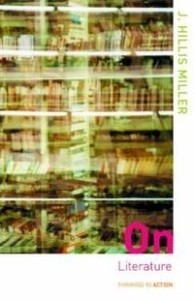 Not too long ago I finished reading J. Hillis Miller’s On Literature, a slim and thoughtful consideration of the role of the written word at the end of the 20th century. Born from a lecture at UC Irvine in 2001, Miller expanded his talk into six chapters and 160 pages of conversational prose asking the simple but still-unanswered questions of literary theory: What is literature? Why read it? And how does it “work”?
Not too long ago I finished reading J. Hillis Miller’s On Literature, a slim and thoughtful consideration of the role of the written word at the end of the 20th century. Born from a lecture at UC Irvine in 2001, Miller expanded his talk into six chapters and 160 pages of conversational prose asking the simple but still-unanswered questions of literary theory: What is literature? Why read it? And how does it “work”?
I almost didn’t finish the book, however, or even start it. Standing at the bo...
November 22, 2015
In praise of front matter
This is prehistoric by Internet time, but a few months ago Paul Cantor’s essay “eBooks Are Great But….” left me thinking about a lot of issues surrounding the rise of digital books. I responded to him directly on Medium (you can read my full response), but as time passed one detail I touched on kept nagging me:
My biggest gripe with the Kindle is how it opens a new book to the first page of the first chapter. Here Amazon screwed up. Show me the cover, then let me page through the front matte...
November 5, 2015
Twenty Writers: Another interpretation of The Flitcraft Parable (from The Maltese Falcon)
See the Introduction for more information on Twenty Writers, Twenty Books. The current list of writers and books is located at the Continuing Series page.
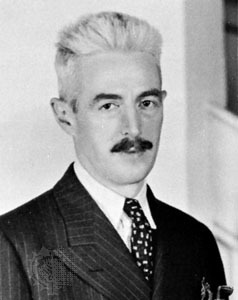
Dashiell Hammett
Earlier this year I wrote about “The Flitcraft Parable”, a story Sam Spade tells in The Maltese Falcon to Brigid O’Shaughnessy, the novel’s femme fatale. The parable is interesting for a number of reasons, but the central question that’s been attacked by readers and critics for almost a century is the purpose of its tellin...
November 3, 2015
Kung Pao Grantland
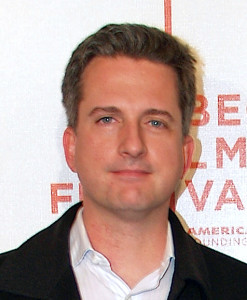
Bill Simmons
 For the past few days there’s been an under-the-radar furor over the news that ESPN will shutter (and now has shuttered) Grantland, Bill Simmon’s unorthodox and motley digital magazine he started in 2011. A melange of sports writing and pop culture analysis, Grantland offered daily doses of baseball/football/basketball coverage (“The Triangle”), movie and television reviews, NBA trade predictions, Hollywood power-structure tell-alls, and straight-up unabashed fan writing of all m...
For the past few days there’s been an under-the-radar furor over the news that ESPN will shutter (and now has shuttered) Grantland, Bill Simmon’s unorthodox and motley digital magazine he started in 2011. A melange of sports writing and pop culture analysis, Grantland offered daily doses of baseball/football/basketball coverage (“The Triangle”), movie and television reviews, NBA trade predictions, Hollywood power-structure tell-alls, and straight-up unabashed fan writing of all m...
September 29, 2015
Writing better fiction with Syd Field’s three-act screenplay structure: Completing the treatment
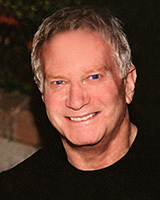
Syd Field
(See my “Continuing Series” page for a listing of all posts about using Syd Field’s paradigm to write fiction.)
Last post I explained the fiction writer’s treatment (and how it’s different than a film treatment) as part of this series on how to use Syd Field’s three-act screenplay structure for writing stories and novels.
To recap, the first four questions you should ask yourself for the treatment are:
Protagonist: Who is the main character of this story? Setup: What is the minimum...July 30, 2015
The denouement did not happen here: Watchword’s Whole Story, “A Concordance of One’s Life”
On May 4th and 5th, 2007, Watchword Press held the second of their literary art shows “Whole Story”. Watchword’s goal was to join visual and performance artists with writers and create a unique collaborative event.
In this case, artists were invited to read and react to my story “A Concordance of One’s Life” (collected in my eponymous book). If some of the images make little sense, it helps to read the story first. (You can get a free copy by signing up for my mailing list.)
Photos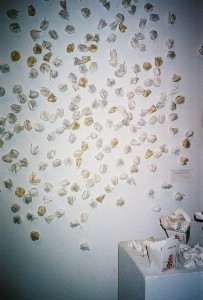
Fortune co...
July 24, 2015
Gawker, meet Sid Hudgens: media mogul, slimeball, genius
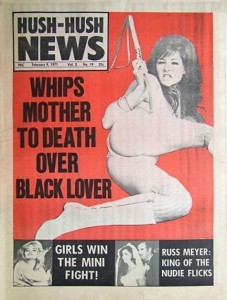
Myron Fass’ Hush-Hush News
In James Ellroy’s brilliant novel L.A. Confidential, he introduces readers to Sid Hudgens, one of Ellroy’s most colorful and enduring characters. Publisher of Hush-Hush magazine (“off the record, on the Q.T. and very hush-hush”), Hudgens gleefully reports on the secret lives of drag queens and lesbians, dishes the dirt on the famous (Robert Mitchum’s “Big Dope Bust of 1948″), and outs hunky actors whenever the whiff of non-heterosexual possibilities are sniffed out...
July 9, 2015
Twenty Writers: Peter Bagge, HATE
See the Introduction for more information on “Twenty Writers, Twenty Books.” The current list of writers and books is located at the Continuing Series page.
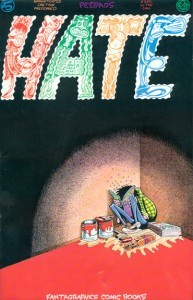
Hate 5
Peter Bagge is my venerated saint. It took me far too long to figure that out.
Back in the 1990s, I stumbled across Bagge’s brilliant HATE comics more than a few times—on a comic book store rack, in a cool barber shop’s magazine pile (not that I spent much time at barber shops back then), stuck in the middle of a friend’s stack of...
July 2, 2015
From three acts to trilogies: The fall of “tight, gapless” writing
Over at Grantland, Kevin Lincoln makes a deft observation about the current (sorry) state of Hollywood’s output, which has gone from “tight, gapless screenwriting” to scripts focused on world-building, sequels, expansion, rebooting—in other words, franchising.
Lincoln quotes screenwriter John August:
Most screenwriters are essentially world-builders, and the nature of screenwriting is to create a universe in which these characters live, so that’s really exciting for screenwriters … it’s this...
June 26, 2015
Twenty Writers: Unstuck in Dresden
See the Introduction for more information on “Twenty Writers, Twenty Books.” The current list of reviews and essays is located at Continuing Series.

Early one August morning, the summer of 2011, I set off for Dresden. I was lodging at a surprisingly spacious budget hotel located in what was once known as East Berlin. I showered, snagged a Brötchen from the breakfast table downstairs, and rode public transit to Berlin’s central train station, the Hauptbahnhof.
The Hauptbahnhof was a modest-s...



